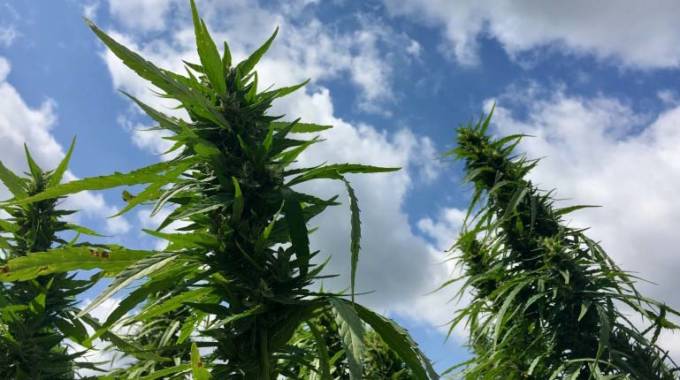
The Sunday Mail

Theseus Shambare
SIXTY-ONE entities involved in hemp production, trade and research have been registered with the Agricultural Marketing Authority (AMA) since the promulgation of legalisation greenlighting production of the crop for medicinal and scientific purposes in 2018.
AMA oversees registration and licensing of hemp cultivators, merchants, researchers and breeders.
Zimbabwe has so far exported over 8 000 tonnes of hemp, primarily to Poland, Switzerland and Germany, demonstrating a growing international market for the commodity.
Hemp is a variety of the cannabis plant known for its industrial uses and low levels of tetrahydrocannabinol, the psychoactive compound found in marijuana.
It can be used to manufacture a variety of products, including textiles, building materials and biofuels.
In an interview with The Sunday Mail, AMA agribusiness director Mr Jonathan Mukuruba said Zimbabwe was poised to be a regional powerhouse in hemp production.
“The future of industrial hemp in Zimbabwe is very promising and poised for significant growth and development. With a notable surge in registered players along the value chain and a growing interest in the sector, Zimbabwe is on track to emerge as a regional leader in industrial hemp production,” said Mr Mukuruba.
The opening up of the sector, he said, has led to growth in the number of new players.
“The number of industrial hemp players has steadily increased in the past three seasons,” he said.
“As of December 31, 2023, AMA had 61 registered hemp players — cultivators (31), merchants (13) and researchers and breeders (17).”
In Africa, about 10 countries, including Ethiopia, Eswatini, Ghana, Lesotho, Malawi, Morocco, Rwanda, South Africa, Zambia and Zimbabwe, have legalised industrial hemp production. “Last year, AMA partnered with a Polish company, Plantiqua Hemp, to help local cannabis farmers produce quality hemp that would fetch good prices on the international market,” added Mr Mukuruba.
“Plantiqua agreed to buy hemp from our cultivators because they already have their markets, and this is meant to help us increase production and productivity since they have factories and processing plants back home.”
Kutsaga Research Station (formerly Tobacco Research Board) is presently undertaking extensive research to come up with seed varieties suitable for Zimbabwe.
The research station’s chief executive officer, Dr Frank Magama, said it had expanded its focus to include researching on alternative crops, apart from tobacco.
“Regarding alternatives, we will introduce new and profitable crops such as hemp. Industrial hemp is an alternative because it grows in areas where tobacco does well, too,” he said.
“Therefore, we have embarked on a project to determine the best variety to grow in the country and also to look at the agronomic practices that work well with growing industrial hemp locally.”
He said most varieties that are available locally are illegal to produce.
“We are now looking at them as varieties that will give us a basis for genetics that can be adapted for use in our country.
“We will be appealing to the authorities to allow us to work with some of these varieties strictly for research purposes so that we use material that is locally adaptable and then breed them with international varieties to come up with a variety best suited for local production.”



